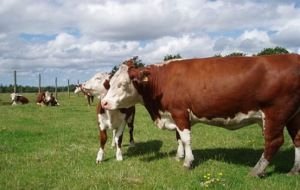News
New climate policy mechanisms a boon to Denmark’s CO2 reduction plans
This article is more than 8 years old.
By signing the Paris Agreement on climate change, the European Union pledged to do its bit in reducing CO2 emissions

It’s all about transferring CO2 quotas from one sector to another (photo: Michael Hoffmann Hansen)
As part of an EU-wide initiative, Denmark has committed to a 39 percent reduction in CO2 emissions by 2030 in sectors not covered by the emissions trading system (ETS).
READ ALSO: Massive investment in CO2 reduction partnership projects
Last weekend, the EU’s climate ministers reached an agreement on how an overall reduction should be shared out amongst the member states, reports Ingeniøren.
A two-pronged attack
The deal allows for two flexible mechanisms: one on reducing emissions in sectors not covered by ETS, the other on emissions from land use and forestry.
The first proposal foresees emissions cuts in non-ETS sectors – including buildings, transport, waste and agriculture from 2021-2030 – through binding annual targets for all members states. These sectors together account for more than half of all EU emissions.
The second proposal – on land use, land use change and forestry (LULUCF) – is about incorporating emissions and removals from land use and forests into the EU’s climate framework from 2021. It will enshrine the ‘no-debit’ rule – ensuring no net emissions from LULUCF activities – in EU law.
Good news for Danish farmers
For Denmark, the combination of LULUCF and ETS credits could provide around 80 percent of the CO2 reduction needed in the transport, buildings and farming sectors for the period 2021-2030.
Access to these mechanisms varies from country to country. The greatest degree of flexibility is reserved for countries highly dependent on farming that would be especially hard hit by steep reductions. So countries such as Ireland, Denmark, Estonia, Latvia and Lithuania are allowed to transfer the largest amounts of CO2 using this system.
The energy and climate minister, Lars Christian Lilleholt, intends to used these new mechanisms and is pleased with the agreement.
“We’ve managed to cut a deal that is also good for Denmark,” he said.
“What we have to accomplish by 2030, we can manage without affecting growth and prosperity in Denmark and Danish jobs.”
The art of the possible
According to estimates from Energistyrelsen, a 39 percent reduction would mean that Denmark has to reduce CO2 emissions by around 28 million tonnes from 2021 to 2030 in the transport, buildings and farming sectors. Of this, the ETS mechanism can contribute around 8 million tonnes and LULUCF 14.6 million tonnes.
The climate agreement now has to be formally ratified by the European Parliament, but it is not expected to be amended significantly.










































